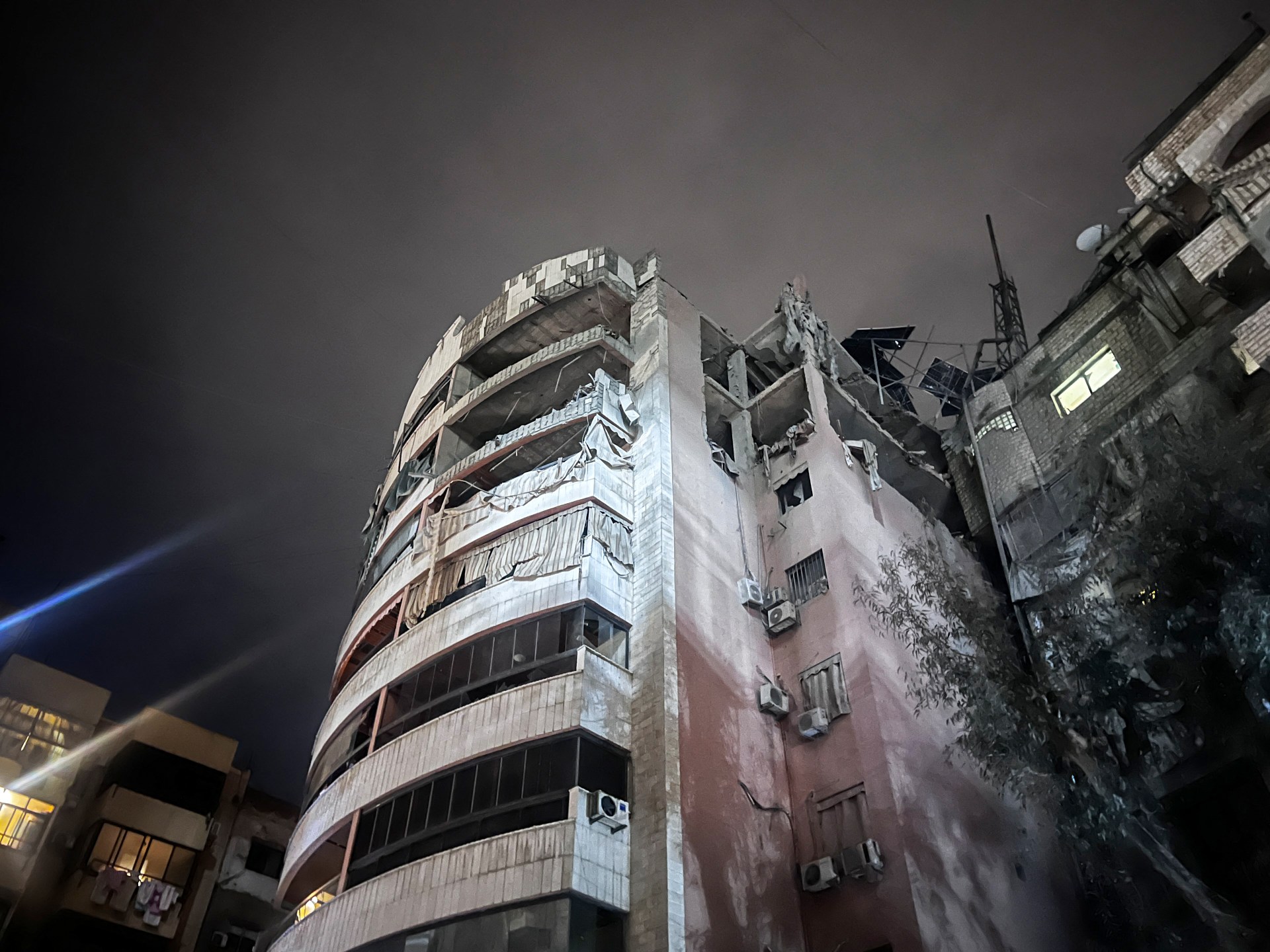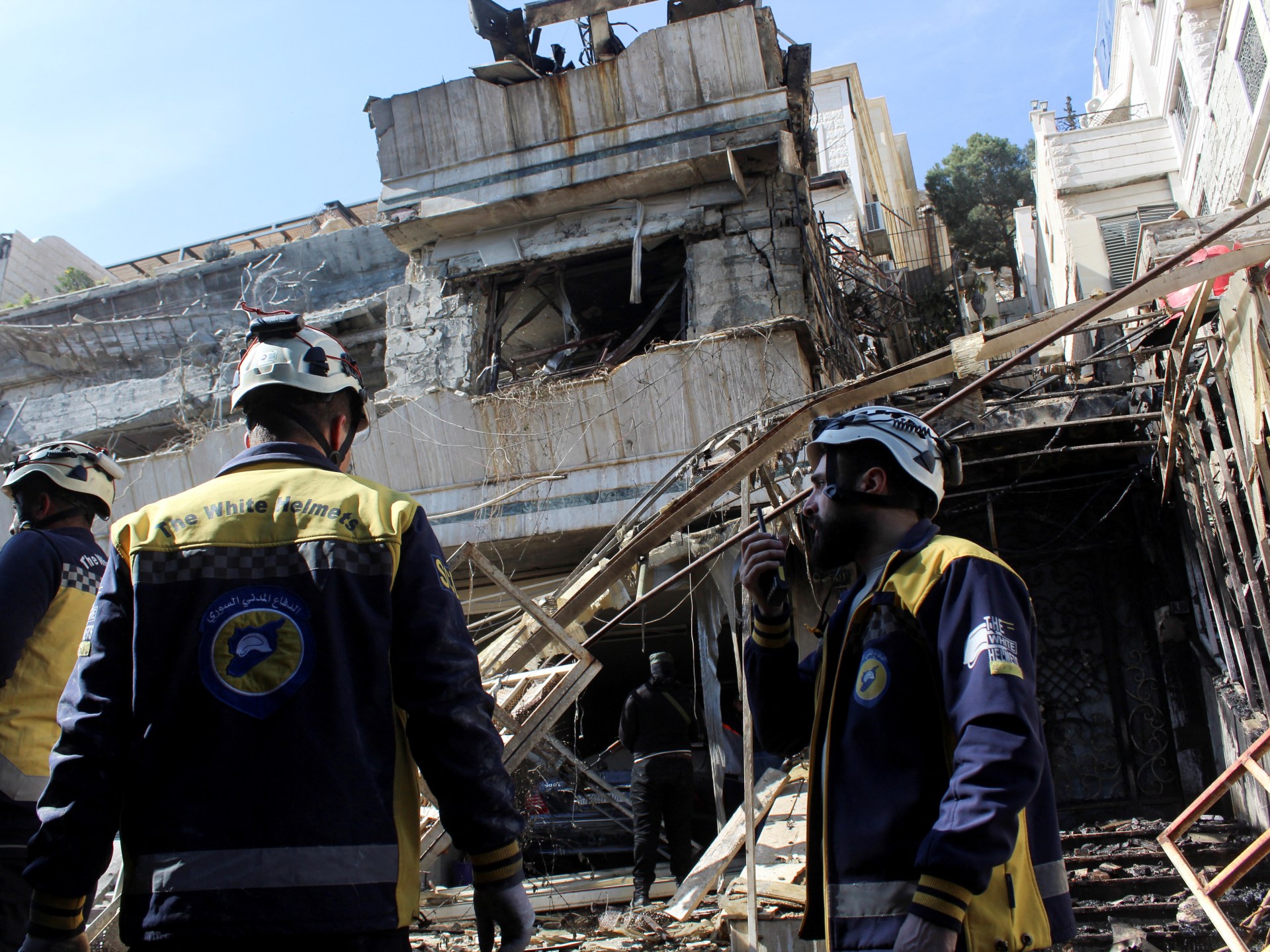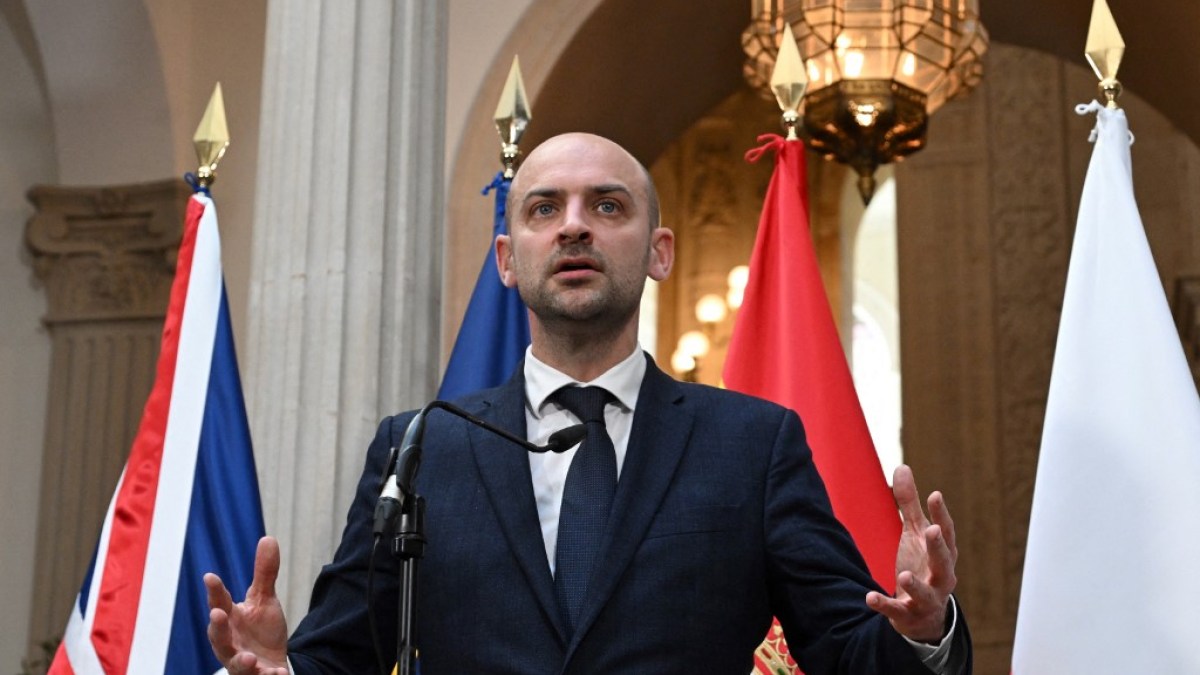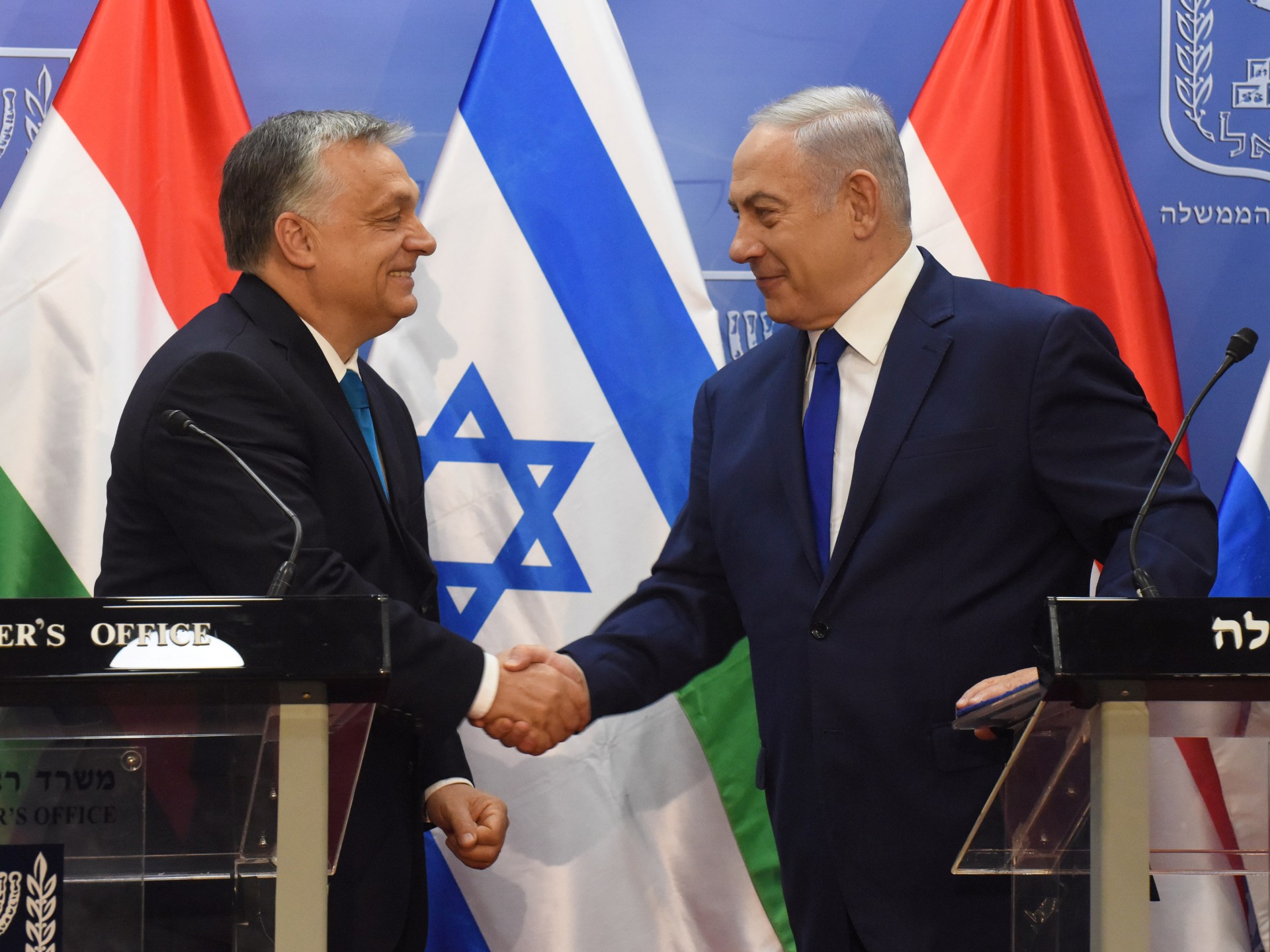Middle East
Israel strikes Lebanon’s Beirut testing fragile truce with Hezbollah | Hamas News

Israel’s military has bombed the Lebanese capital, Beirut, for the second time in less than a week, killing at least four people and threatening the ceasefire it agreed with Hezbollah four months ago.
The attack on Beirut’s southern suburb of Dahiyeh, early on Tuesday, came without warning, according to witnesses.
The Lebanese Ministry of Health said the four people killed included a woman and that seven others were also wounded.
Israel’s military said in a statement that it had targeted Hassan Bdeir, a member of a Hezbollah unit and Iran’s Quds Force, who was assisting the Palestinian armed group Hamas in planning a “significant and imminent terror attack against Israeli civilians”.
The Israeli army did not offer any evidence for the statement. There was no immediate comment from Hezbollah.
Lebanon’s President Joseph Aoun condemned the latest assault, calling it a “dangerous warning” of Israel’s intentions against his country.
“Israel’s persistence in its aggression requires more effort from us in addressing Lebanon’s friends around the world and rallying them in support of our right to full sovereignty over our land,” Aoun said in a statement.
Videos of the aftermath of the bombing showed plumes of smoke rising above Dahiyeh.
They also showed damage to the top three floors of an apartment building and piles of debris covering cars below the structure.
A surveillance camera captured the moment of the Israeli airstrike that targeted a residential building in Dahye, the southern suburb of Beirut. pic.twitter.com/OIopvH7sNf
— Quds News Network (@QudsNen) April 1, 2025
Al Jazeera’s Resul Serdar, reporting from Beirut, said rescue operations were continuing, and added that the latest attack is “extremely worrying” for the Lebanese government since it comes just three days after Israeli forces bombed Beirut for the first time since the ceasefire deal with Hezbollah in November.
That agreement, guaranteed by France and the United States, brought a halt to a yearlong conflict and mandated that Israeli ground troops withdraw from southern Lebanon.
It also called for Hezbollah fighters to withdraw from the south, beyond the Litani River and the United Nations designated temporary border, the Blue Line, and for Lebanese troops to deploy there.
Both sides, however, have accused each other of violations.
Israel delayed a promised troop withdrawal in January and has continued to occupy several hilltops in south Lebanon. It has also carried out near-daily attacks on the country, claiming it was striking Hezbollah fighters and weapons.
Its military launched the attack on Beirut on Friday saying the raid was in response to rockets fired from Lebanon.
Hezbollah has denied any involvement in the rocket firings.
Al Jazeera’s Serdar said there were key differences between the two Israeli assaults on Friday and Tuesday.
“The Israelis say the one that happened in March 28 was in retaliation for rockets being fired from the Lebanese side, but this time, there was no rocket fire,” he said.
“So the question now is will Israel continue attacking the capital of the country?” he asked. “People in Beirut are extremely worried. They say the peace here is really fragile and that any little development could collapse the ceasefire and spark another war.”
Hezbollah leader, Sheikh Naim Qassem, warned on Saturday that if Israel’s attacks on Lebanon continued and if Lebanon’s government does not act to stop them, the group would eventually resort to other alternatives.
Analysts meanwhile blamed the US for Israel’s continued attacks on Lebanon.
Phyllis Bennis, a fellow with the Institute for Policy Studies, told Al Jazeera that the Trump administration has effectively greenlighted Israel’s attacks, not just on on Lebanon, but also on Syria and the occupied Palestinian territory.
“There’s no question that the Trump administration has made very clear that they will not criticise Israel. They will not stop sending the weapons that enable it to continue these attacks,” Bennis said from Washington, DC.
“What we’re seeing now is really an extension of the genocidal war that Israel has been waging in Gaza, to Lebanon, where they’re not only carrying out the attacks in the capital, but have expanded the former UN buffer zone,” she said.
Israel has now “unilaterally collapsed the ceasefire” in Lebanon, but both France and the US – the guarantors of the deal – have stood back and let the Israeli assaults continue, without taking any punitive action, she added.

Middle East
Israel launches air attacks on Syria’s Damascus and Hama | News

In latest wave of attacks, Israel strikes Damascus’s Barzeh neighbourhood and ‘military capabilities’ in Hama and Homs.
Israeli military aircraft have carried out attacks in Syria’s capital Damascus and in the central province of Hama, Israel’s army and local media have said, in the latest string of strikes on the war-torn country.
The state-run Syrian Arab News Agency (SANA) said the attacks on Wednesday targeted the vicinity of the scientific research centre in the Barzeh neighbourhood of the capital, as well as the airport in the Syrian city of Hama.
The Israeli military in a statement confirmed the attacks, saying it struck what it called “military capabilities” at the Syrian military bases in Hama city and Homs’ T4 military airport, along with alleged military infrastructure sites in Damascus.
Since the overthrow of Syrian President Bashar al-Assad in December, Israel has carried out hundreds of air strikes in Syria and deployed troops to a United Nations-patrolled buffer zone on the occupied Golan Heights.
Even while al-Assad was in power, Israel also routinely attacked Syria, bombing what it claimed were Iranian and Hezbollah targets.
In the days after al-Assad’s removal on December 8, the Syrian Observatory for Human Rights (SOHR) – a United Kingdom-based war monitor – reported Israeli strikes targeting the research centre in Barzeh. Israel has claimed the centre was used to develop guided missiles and chemical weapons.
According to SOHR, Israel’s military carried out more than 500 air attacks on targets in Syria between December 8 and December 31, 2024, and has carried out at least 43 attacks so far this year.
Western countries including the United States had previously attacked the Ministry of Defence facility in 2018, saying it was related to Syria’s “chemical weapons infrastructure”.
Last month, Israel said it struck the T4 military base twice, targeting military capabilities at the site.
Last Thursday, Syrian state media said Israeli strikes targeted the coastal Latakia province, with SOHR saying munitions depots were hit.
European Union foreign policy chief Kaja Kallas said last month during a visit to Jerusalem that Israeli strikes on Syria were “unnecessary” and threatened to worsen the situation.
Syria’s Ministry of Foreign Affairs has accused Israel of waging a campaign against “the stability of the country”.
Middle East
Military clash ‘almost inevitable’ if Iran nuclear talks fail, France says | Politics News

Diplomatic failure on Iran deal could lead to military confrontation, French foreign minister warns.
France’s foreign minister has warned of a potential military confrontation if a new agreement on Iran’s nuclear programme cannot be reached.
Speaking after a high-level meeting on Iran chaired by President Emmanuel Macron on Wednesday, Foreign Minister Jean-Noel Barrot said the “window of opportunity” for diplomacy was narrow with Tehran.
European powers are seeking to create a diplomatic path with a view to reaching an agreement to curb Iran’s uranium enrichment activity by the middle of the year and in advance of an October 2025 deadline, when UN sanctions related to a 2015 accord on Iran’s nuclear programme with world powers expire.
Tehran has consistently denied seeking nuclear weapons, insisting its programme is peaceful.
“The window of opportunity is narrow. We only have a few months until the expiration of this (2015) accord. In the event of failure, a military confrontation would seem to be almost inevitable,” Barrot told parliament.
“Our confidence and our conviction remain intact,” Barrot said. “Iran must never acquire nuclear weapons.” He stressed that France’s priority is securing a “verifiable and durable” agreement to limit Iran’s nuclear activities.
The 2015 Joint Comprehensive Plan of Action (JCPOA), which provided sanctions relief in exchange for nuclear restrictions, collapsed after US President Donald Trump unilaterally withdrew in 2018 and reimposed crippling economic sanctions.
Since then, Iran has far surpassed that deal’s limits on uranium enrichment, producing stocks at a high level of fissile purity, well above what Western powers say is justifiable for a civilian energy programme and close to that required for nuclear warheads.
The European powers have sought to raise pressure on Iran to coax it back into nuclear discussions. They have held several rounds of talks with Iran, including at the technical level, last week, to try to lay the groundwork.
But the Trump administration has focused initially on a campaign of “maximum pressure”.
Trump, who has urged Supreme Leader Ayatollah Ali Khamenei to engage immediately in negotiations, threatened Iran on Sunday with bombing and secondary tariffs if it did not come to an agreement over its nuclear programme.
Khamenei has promised retaliation for any attack.
Foreign Minister Seyyed Abbas Araqchi, in talks with his Dutch counterpart on Wednesday, reaffirmed Tehran’s commitment to peaceful nuclear development under international law, the official Tasnim news agency reported.
Araqchi reiterated that Iran’s nuclear programme complies with international regulations. He said Tehran remains open to genuine negotiations, provided they occur on equal terms and without coercion, threats, or intimidation.
He also condemned recent US statements about Iran, calling them unacceptable and a violation of international principles. Araqchi warned that Iran would respond swiftly and decisively to any attack on its sovereignty, territorial integrity, or national interests.
Middle East
Israel’s Netanyahu heads to Hungary in defiance of ICC arrest warrant | Gaza News

Prime Minister Viktor Orban has made it clear Hungary will not arrest the Israeli prime minister despite an international warrant.
Israeli Prime Minister Benjamin Netanyahu is heading on a four-day visit to Hungary, despite an International Criminal Court (ICC) arrest warrant over allegations of war crimes in Gaza.
Hungary, a founding ICC member, is theoretically obliged to arrest and hand over anyone subject to a warrant from the court. However, Prime Minister Viktor Orban made clear it would not respect the ruling.
Netanyahu is expected to meet Orban in Budapest on Wednesday evening. Details of their planned programme have been limited to a visit to a Holocaust memorial.
The trip will be Netanyahu’s second abroad since the ICC issued warrants to arrest both him and former Defence Minister Yoav Gallant in November last year. The Israeli prime minister visited Washington in February to meet close ally US President Donald Trump. Israel and the United States are not members of the ICC.
The Hague-based court has criticised Hungary’s decision to defy its warrant for Netanyahu. The court’s spokesperson, Fadi El Abdallah, said that it is not for parties to the ICC “to unilaterally determine the soundness of the Court’s legal decisions”.
Participating states have an obligation to enforce its decisions, El Abdallah told The Associated Press news agency in an email, and may consult with the court if they disagree with its rulings.
“Any dispute concerning the judicial functions of the Court shall be settled by the decision of the Court,” El Abdallah said.
Orban has been the EU’s most intransigent spoiler in the bloc’s decision making and is seen as a pioneer of some of the same tactics that Netanyahu has been accused of employing in Israel, including the subjugation of the judiciary and a crackdown on civil society and human rights groups.
Disregard for the rule of law
The European Green Party has called for Netanyahu to be arrested and face the ICC trial.
“The European Union and national governments have a duty to uphold international law and ensure accountability for war crimes and human rights abuses,” said the party co-chair Ciaran Cuffe in a statement.
“By ignoring the International Criminal Court’s arrest warrant for Prime Minister Netanyahu, Viktor Orban is showing the same disregard for the rule of law on the international stage that he has consistently shown in Hungary,” Cuffe added.
The ICC issued arrest warrants after assessing there were “reasonable grounds” to believe that Netanyahu and Gallant “intentionally and knowingly deprived the civilian population in Gaza of objects indispensable to their survival, including food, water, and medicine and medical supplies, as well as fuel and electricity”.
Israel has rejected all the accusations, which it says are politically motivated and fuelled by anti-Semitism.
-

 Education1 day ago
Education1 day agoTrump administration suspends a host of federal grants to Princeton University
-

 Lifestyle2 days ago
Lifestyle2 days agoNative spring ephemerals bring early color to the garden
-

 Sports2 days ago
Sports2 days agoJurickson Profar: Braves outfielder suspended 80 games after testing positive for banned substance
-

 Lifestyle2 days ago
Lifestyle2 days agoThere’s a new push to put whole milk back in school meals. Here’s what you should know
-

 Africa2 days ago
Africa2 days agoTrump hints at third term possibility, despite constitutional limits
-

 Sports2 days ago
Sports2 days agoWhat are the ‘torpedo’ bats in MLB that have everyone talking?
-

 Europe2 days ago
Europe2 days agoEurope warns Trump: We have ‘a strong plan’ for retaliation against tariffs
-

 Lifestyle2 days ago
Lifestyle2 days ago‘The Friend’: When the star of the movie is a very good boy




